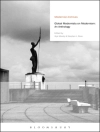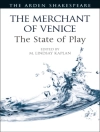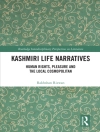Soren Kierkegaard’s The Sickness unto Death is widely recognized as one of the most significant and influential works of Christian philosophy written in the nineteenth century. One of the cornerstones of Kierkegaard’s reputation as a writer and thinker, the book is also a masterclass in the art of interpretation. In critical thinking, interpretation is all about defining and clarifying terms – making sure that everyone is on the same page. But it can also be about redefining terms: showing old concepts in a new light by interpreting them in a certain way. This skill is at the heart of The Sickness unto Death. Kierkegaard’s book focuses on the meaning of "despair" – the sickness named in the title. For Kierkegaard, the key problem of existence was an individual’s relationship with God, and he defines true despair as equating to the idea of sin – something that separates people from God, or from the idea of a higher standard beyond ourselves. Kierkegaard’s interpretative journey into the ideas of despair, sin and death is a Christian exploration of the place of the individual in the world. But its interpretative skills inspired generations of philosophers of all stripes – including notorious atheists like Jean-Paul Sartre.
Shirin Shafaie
Analysis of Soren Kierkegaard’s The Sickness Unto Death [EPUB ebook]
Analysis of Soren Kierkegaard’s The Sickness Unto Death [EPUB ebook]
Bu e-kitabı satın alın ve 1 tane daha ÜCRETSİZ kazanın!
Dil İngilizce ● Biçim EPUB ● Sayfalar 104 ● ISBN 9781351353427 ● Yayımcı Taylor and Francis ● Yayınlanan 2017 ● İndirilebilir 3 kez ● Döviz EUR ● Kimlik 5320306 ● Kopya koruma Adobe DRM
DRM özellikli bir e-kitap okuyucu gerektirir












